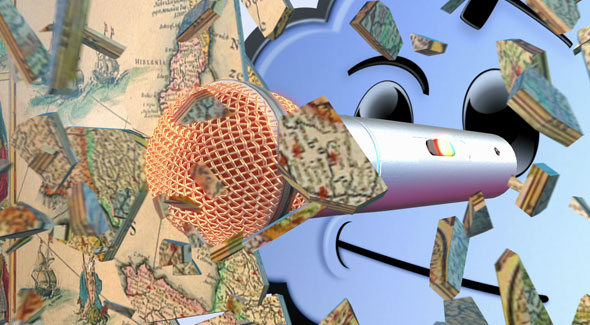Mark Lee tackles Croatia and Georgia in this latest installment of the Eurovision 2013 review. Croatia’s song is a form of folk music recognized by UNESCO, while Georgia’s song is recognized by J.J. Abrams as FULLY LOADED WITH LENS FLARES.
Check out the original videos: “Mižerja” by Klapa s Mora (Croatia) and “Waterfall” by Nodi Tatishvili & Sophie Gelovani (Georgia). (Amazingly, Georgia’s music video has no water in it whatsoever, much less a waterfall.)
And don’t forget to subscribe to our YouTube channel for the increasing number of videos we are producing these days.

I don’t really like when the entries are sung in English. If I would want to listen to bland pop-rock in English I could just turn on the radio.
1. Norway 2. Cyprus 3. Croatia 4. Serbia 5. Finland 6. Georgia 7. Malta 8. Armenia 9. Albania 10. Azerbaijan 11. UK 12. Bulgaria 13. Latvia 14. Belarus
I actually feel like I’m more forgiving towards the countries who don’t send entries in English. If I can’t understand the lyrics, then I can’t judge them and only pay attention to the singing and the melody.
The thing about Croatian music is that the single most important criteria for it is “does it sound even slightly Serbian?”
If the answer is yes, then the singer is an as much trouble as a US singer caught in a Vegas hotel room with a goat and a tub of butter.
Lest you think I am exaggerating, here is an entry from the Wikipedia page of Severina Luckovic, singer of their 2006 entry:
“The song caused some controversy in Croatia when a few journalists and musicologists claimed the song resembled the music of Serbia. However, prominent Croatian ethno-musicians such as Dunja Knebl and Lidija Bajuk disagreed, and both the song’s composer Boris Novković and Severina herself have claimed that the song includes Croatian folk music influences from the Dalmatian Zagora (Inner Dalmatia) such as ganga and rere singing and lijerica instrumentation.”
Later, when talking about another one of her singles, it comments:
“After the first single from the album Gas, Gas was released, accusations followed once again that particularly due to the brass elements and mischievous, prankish lyrics, the song closely resembled turbo-folk, another type of music played in Serbia.”
Dear Head which is shiny and empty, these things that you are talking about have nothing to do with this years Croatian ESC entry. Authentic Dalmatian klapa singing sounds Serbian? Maybe the reason is that croatian and serbian languages are 97% the same? And the last name of the singer who entered ESC in 2006. is not Luckovic but Vuckovic. Ease up a little on letting wikiped.i. doing your homework.
Thank you in advance